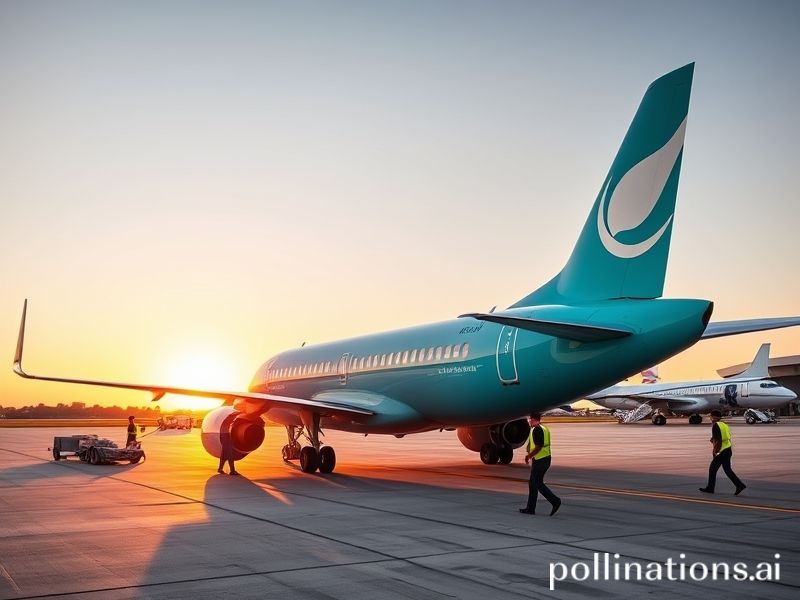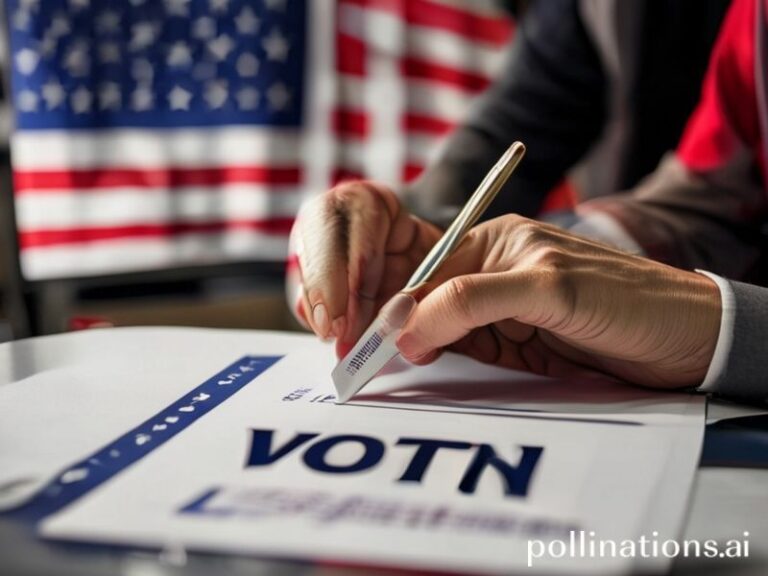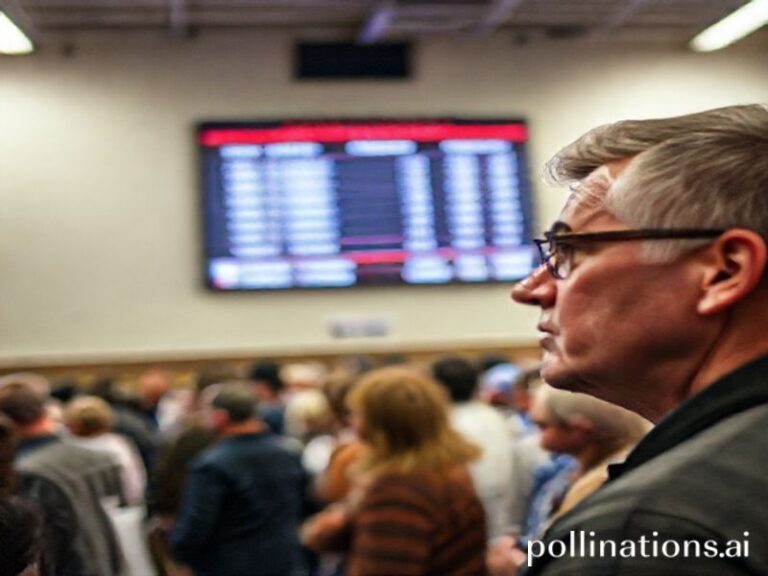Breeze Airways: How a Pastel-Colored Startup Is Quietly Rewriting the Geography of Global Escape
Breeze Airways: The Boutique Airline That Turns Jet Lag Into a Morality Play
By Our Man in the Departure Lounge, Somewhere Between Existential Dread and Gate C7
The planet’s newest boutique carrier, Breeze Airways, began life in 2021 with all the innocence of a freshly stamped passport. Founder David Neeleman—serial aviation midwife behind JetBlue, Azul, WestJet, and probably a surprise airline in Antarctica—promised “Seriously Nice” service on point-to-point routes the majors wouldn’t touch unless bribed with a federal bailout. Two years on, the experiment is proving something the United Nations refuses to codify: humans will tolerate almost any indignity if it shaves forty-three minutes off a connection and still leaves room for overhead luggage.
From Porto to Phuket, the model is being dissected by consultants who bill by the syllable. Breeze’s fleet of brand-new Airbus A220s—those carbon-fiber hummingbirds that make a 737 look like a municipal bus—flies direct between second-tier U.S. cities such as Richmond and Bentonville, the sort of destinations most Europeans need Google to spell. The planes are configured with “Nicest” class seats that recline like a narcoleptic therapist’s couch and Wi-Fi that sometimes works, a combination that leaves passengers staring out the window wondering if the algorithm has already booked their next life.
Internationally, Breeze is less an airline than a geopolitical mood ring. Its very existence mocks the hub-and-spoke empires built by legacy carriers—those wheezing alliances named after celestial bodies and ancient art. While Lufthansa, Air France–KLM, and the rest of Star-Schmuck-Skypod squabble over carbon credits and whose turn it is to apologize for the 2008 bailout, Breeze simply erases the hub. The message is as subtle as a TSA pat-down: globalization is no longer a grand, sweaty orgy in Dubai Duty Free; it’s a quiet elopement between two midsized cities that once believed they needed Paris to introduce them.
Environmentalists, bless their hemp socks, have already accused Breeze of encouraging “induced demand,” the academic term for tempting people to fly who otherwise might have stayed home binge-watching subtitles. The airline counters that its A220s sip 40 percent less fuel per seat than the geriatric Mad Dogs still haunting certain developing nations’ fleets. Both sides are technically correct, which means the planet loses either way—an elegant reminder that in the 21st century, every silver lining arrives with its own bespoke cloud.
Yet the broader significance lies not in grams of CO₂ but in psychology. Breeze sells the fantasy that geography is optional, that you can outrun your hometown narrative for the price of a concert ticket. This is catnip to a world still shaking off the cabin fever of lockdowns. From Lagos to Lahore, the middle class has learned to price freedom in weekend increments; Breeze simply packages that yearning in pastel liveries and calls it a “mission to make the world a nicer place.” Somewhere, a brand strategist is updating their LinkedIn headline to “Evangelist of Aspirational Niceness.”
Of course, niceness has limits. Breeze’s no-frills fares resemble European ultra-low-cost carriers—think Ryanair with better teeth—until you add seat selection, carry-on, and the existential cost of boarding last. The airline also boasts a loyalty program, BreezePoints, whose terms and conditions read like a haiku written by Kafka. Redemption levels fluctuate with the same volatility as the Turkish lira, ensuring that the points you earned escaping Tulsa dissolve faster than your will to live in an airport Chili’s.
Still, one must admire the choreography. While legacy airlines hemorrhage goodwill like a 1980s dictator, Breeze has weaponized optimism. Its flight attendants—recruited from regional colleges and given the pep-talk equivalent of a Red Bull enema—greet passengers as if each boarding door is the portal to a better tomorrow. Whether that tomorrow includes functioning air traffic control or a habitable biosphere remains an open question, but the snacks are complimentary.
In the end, Breeze Airways is less a transportation company than a global coping mechanism. It reassures Americans that they, too, can enjoy the European privilege of skipping capital cities, while quietly exporting the gospel of micro-escapism to every corner of the map. The planes are new, the legroom tolerable, and the branding aggressively cheerful—everything, in short, that the actual world is not. Fasten your seatbelts; turbulence ahead is sponsored by reality.







